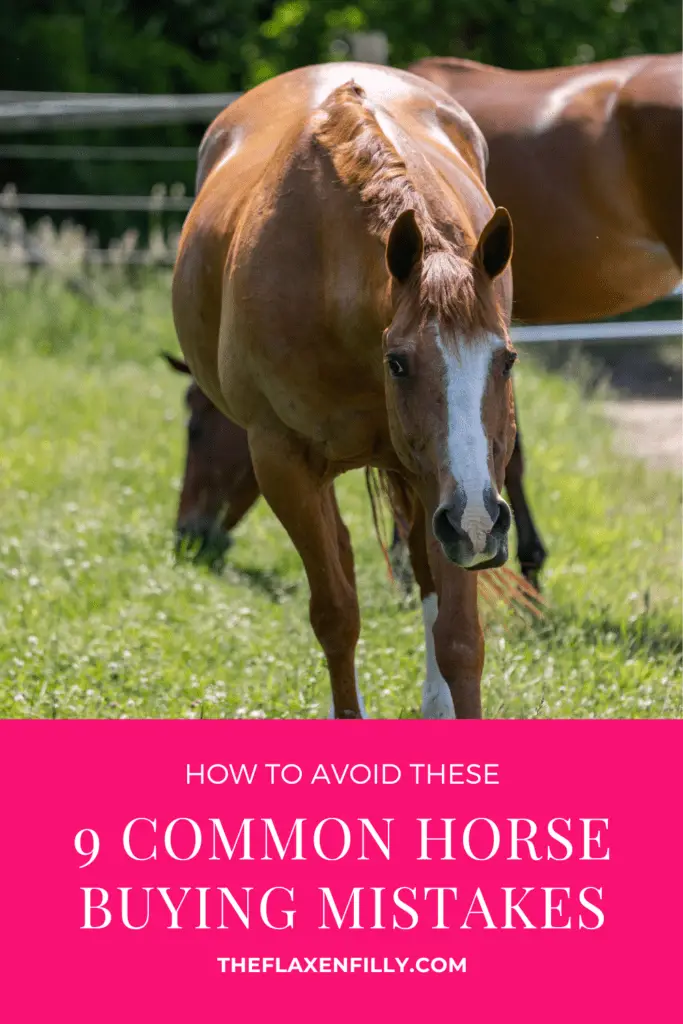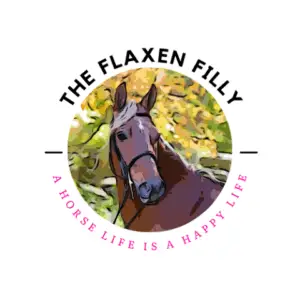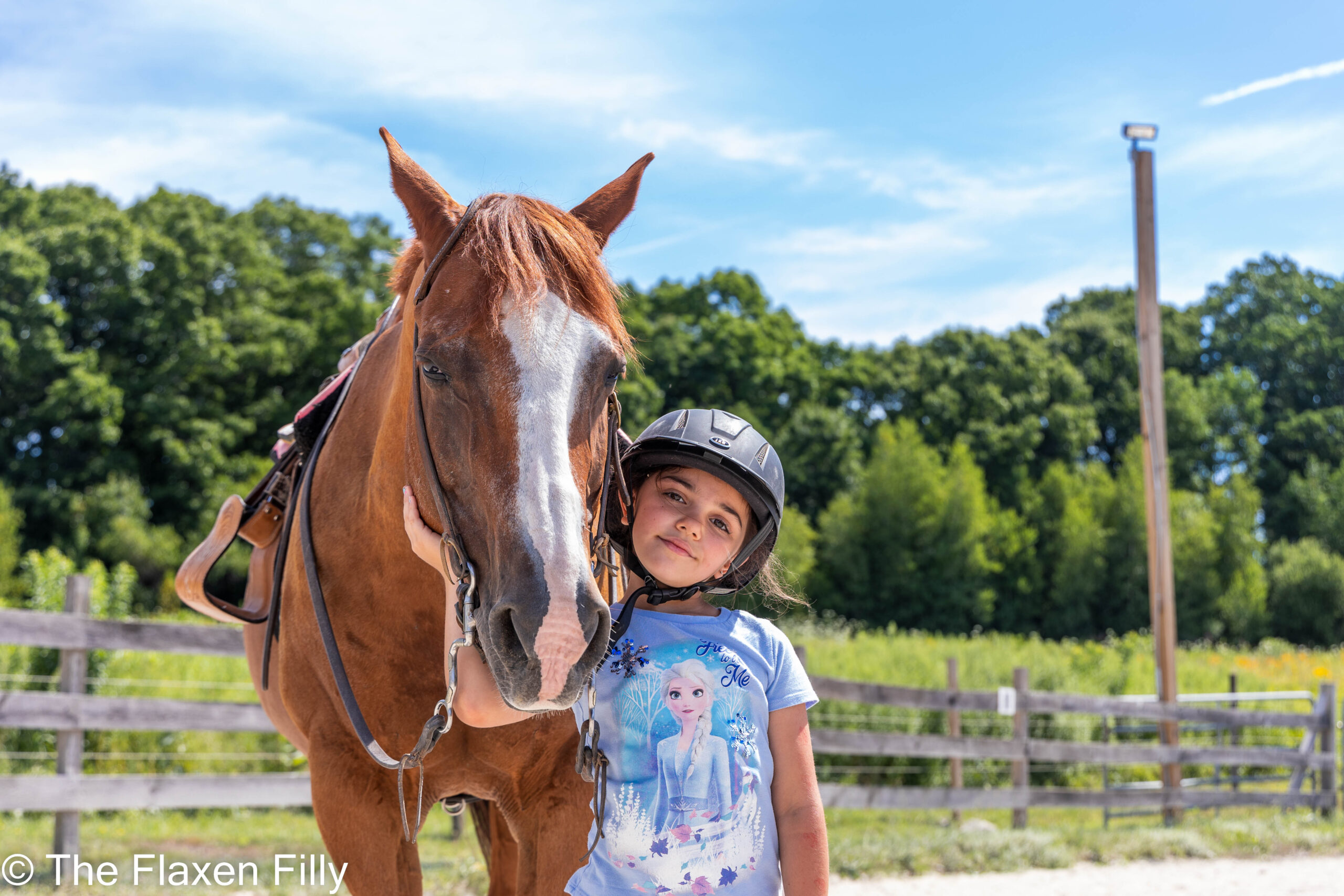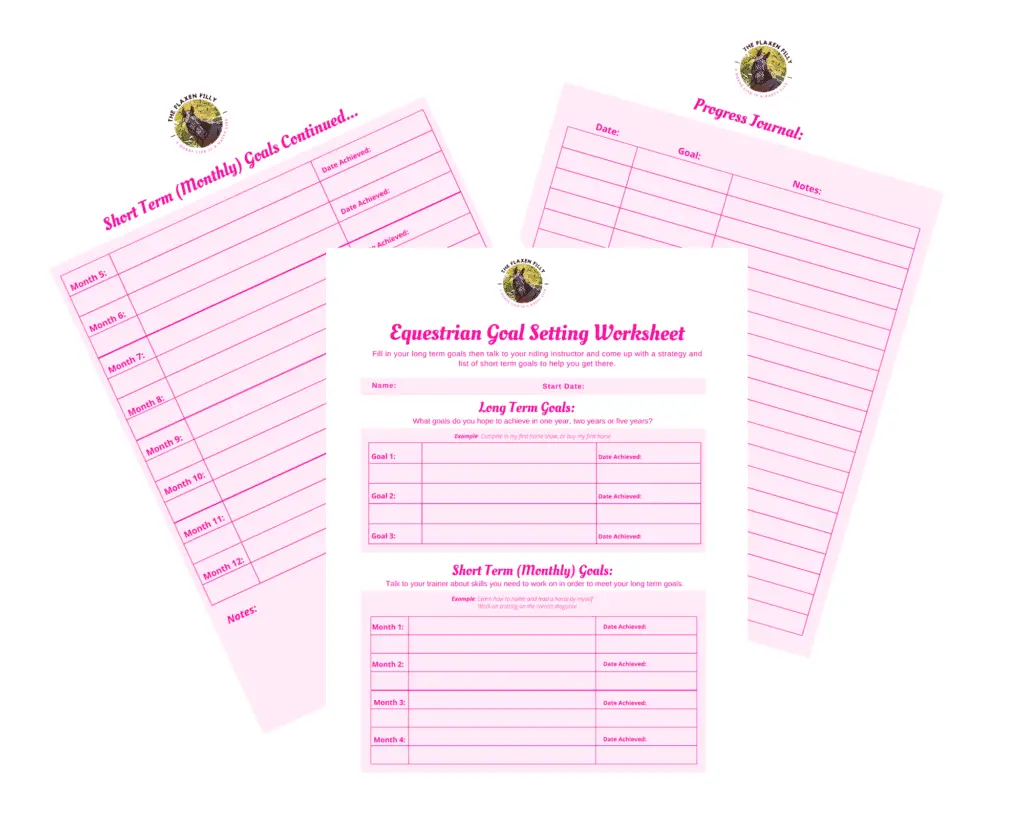Buying a horse, especially your very first horse is incredibly exciting! Imagine the adventures you’ll have with your new friend and the bond you’ll share. It all comes down to finding the right partner. Owning a horse is an enormous responsibility and your horse will need lots of love and care.
If you’re considering buying a horse read on to find out some common horse buying mistakes that you should avoid.
Buying A Horse Sight Unseen
Trying a horse and meeting him in person is a crucial step in determining if the horse is a good match for the rider. It’s like going on a first date before entering a relationship with a prospective partner. No matter how truthful and honest the seller may be, the information they provide to buyers is from their perspective. Additionally, assessing a horse’s personality is somewhat subjective. Some people find certain behaviors cute and endearing while others view it as disrespectful. A seller might say for example that the horse does not like certain things but hasn’t approached those obstacles in the right manner.
The unfortunate truth is that it’s common in the horse industry for sellers to be dishonest. Or even withhold information they think may prevent a sale. If you purchase a horse from a private seller and work directly with the owner versus the trainer or a dealer they may reveal more information. Many horse owners who sell their horses disclose information to ensure their beloved friend ends up in a good home.
When I sell a horse, I always provide as much information as possible. If the horse I’m selling needs certain care like joint injections or is sensitive to bugs, maybe doesn’t like to load onto the trailer I disclose this information. The reason is, I want the new owner to provide the best possible care for the horse. I want to be certain my horse is going to be in good hands.
Buying A Horse Without Your Trainer
Another common mistake equestrians make when searching for a horse is to try horses without first consulting their trainer. Your trainer should be involved in the entire process. Including, finding horses, reviewing videos, communicating with sellers and trying the horse in person. And, often times the seller and their agent want to know that you have a trainer to help you. Sometimes sellers prefer to communicate with a professional during the transaction as well.
While your trainer will likely charge you a commission and for their time and expenses to travel while looking at horses, it is worth the money!
Paying your trainer for their expertise can save you thousands of dollars in the long run.
The best advice for anyone searching for an equine partner, regardless of your goals, is to work with a trainer. It doesn’t matter if you just want a reliable trail partner or if you want to compete in the Olympics, you need a trainer to help you.
Your trainer is a professional horseman because they have experience. Your trainer’s experience allows them to observe and recognize small details. These details can be related to lameness and behavior that you may not be aware of. A professional horseman with lots of experience will ask questions of the seller and veterinarian that a more novice equestrian may not think about as well.
Additionally, it’s easy to fall in love with a horse you think will be the one. Your trainer has the ability to be more objective and reasonable because their emotions are less involved than yours. When your trainer pumps the breaks on a sale, you should listen.
Typically, your horse trainer will want you to find and buy a horse just as badly as you do, everyone enjoys bringing a new horse into the barn! But, their job is to protect you from the consequences of purchasing the wrong horse.
Not Doing A Pre-Purchase Exam
Similar to your trainer, your veterinarian can also save you a lot of money, time and heartache by doing a pre-purchase exam on a horse. It’s very common for people to skip this step if they are short on cash or don’t want to be told there’s something wrong with a horse they love.
The purpose of a pre-purchase exam is not necessarily to stop the sale of the horse. In fact, it’s a beneficial step for multiple reasons. Having a veterinarian check out the horse can alert the buyer of health issues that are not easy to spot. For example, blindness, cataracts, heart murmurs, gut issues etc. And, the veterinarian will also do a lameness exam.
Even if the vet finds a health issue with the horse, it does not mean you shouldn’t buy the horse.
The veterinarian will advise you on whether to do further diagnostics. If the problem is something that can be managed or if there should be restrictions on the amount of exercise and impact the horse can do. For example, you may find out the horse cannot jump due to a problem with their legs or feet but is still sound enough to ride.
Not Asking Enough Questions
If you’re a rookie horse buyer you might be hesitant to ask questions that you think are stupid or to hound the seller with lots of questions. But, fear not. You need to do your due diligence, you should ask lots of questions when discussing and trying horses.
In my guide to buying your first horse I have a list of questions and I outline the whole process of finding and trying horses. So, if you’re in the market for a horse and not sure what to ask, go check it out!
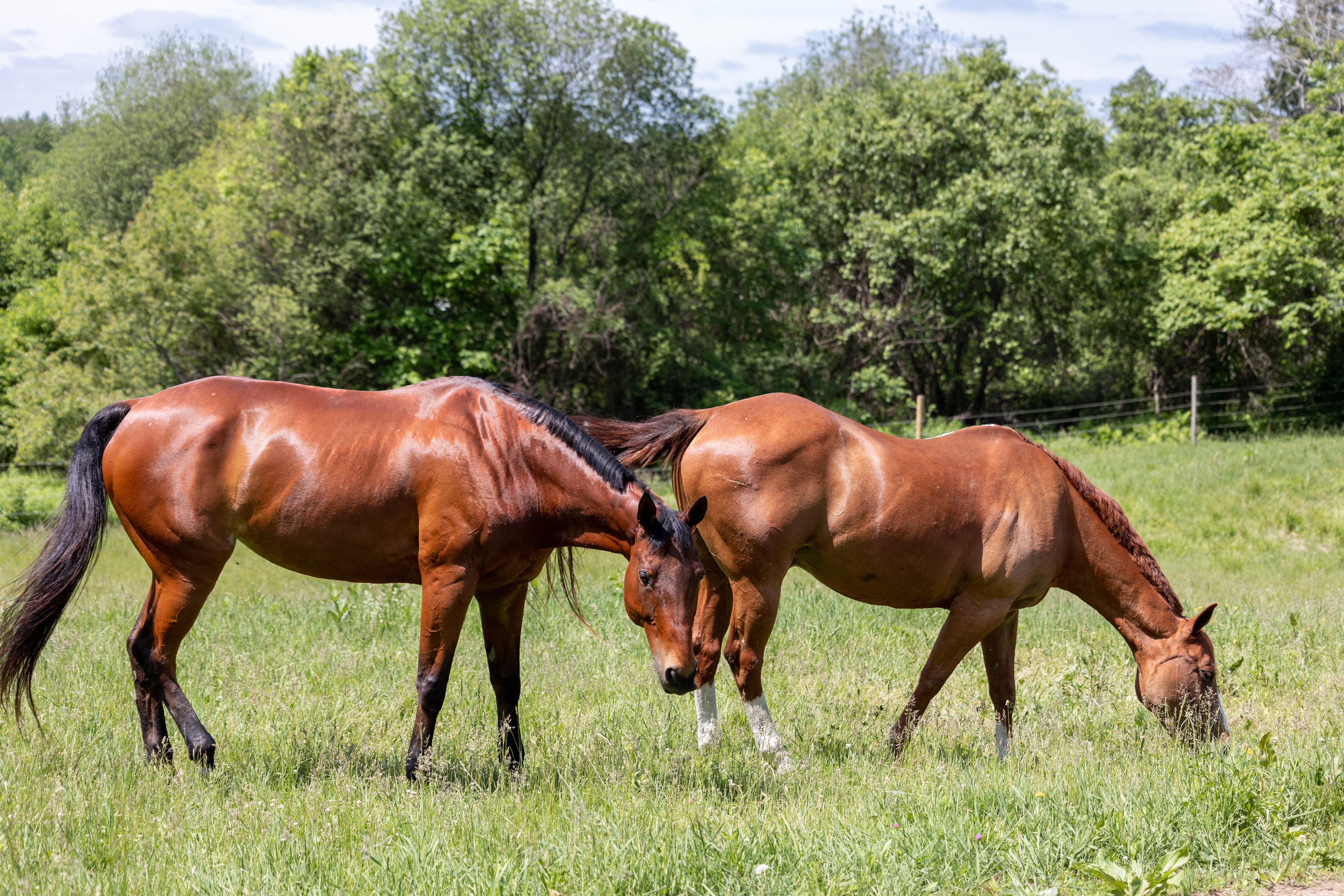
Only Trying A Horse Once
My general rule of thumb and a rule I’ve mostly followed over the years, is to try a horse more than one time. If you try a horse you’re interested in one time you can gather a lot of information. However, you may be so excited about liking said horse, that you overlook certain details.
When you try a horse a second time it’s easier to be objective. Plus, you’ll see the horse on different days to see if their personality and attitude is the same or different. Horses are just like people, they have good days and bad days. Even if the horse is not as great the second time around you might still buy the horse. The idea is to get a sense of how the horse really feels and acts.
If you’re not local to the horse and have traveled across states to see it, you might consider staying overnight in a hotel and trying the horse again the next day.
Chances are, if you really loved the horse the first time, you’ll still love the horse on the next visit. I would also suggest trying another horse in between visits to give you a comparison.
Novice Rider Buying Green Horse
I’m just gonna shoot it to you straight on this one and I hope it doesn’t sound too harsh. I’ve seen this countless times and it’s just plain irresponsible. To let a novice rider or person who has never owned a horse buy a green horse or a baby will lead to problems in most cases. Of course, there are exceptions, but only a few. Horses are not puppies, you don’t buy your child a young horse with the idea that they’ll grow up together. This seems to be a common idea that inexperienced horse parents have. Any professional horse trainer will tell you this is unsafe.
A green horse may be quiet and very good minded, that does not make them suitable for an inexperienced rider. The time will come when the rider does not know the answer to the question and will ultimately lead to an accident. Not to mention, the lack of knowledge and skill usually leads to a horse developing bad habits. Even experienced riders get stumped sometimes.
A lack of knowledge and skill does not make a confident leader in the horse and human relationship. And thus, the horse cannot trust their human partner. If a horse can’t trust their human they have no where to look for direction and that’s when the horse starts to call the shots and things can quickly spiral out of control.
Novice riders on green horses are a dangerous combination no matter how you slice it.
Buying A Horse Before Learning How To Ride
This mistake is right up there with novice riders buying green horses.
If you want to buy a horse but have either never ridden a horse or have ridden less than one year consistently, you’re not ready to own a horse. It takes a lot of time to learn how to care for a horse, never mind just to ride one.
Until you have learned how to clean a stall, what horses eat, how to groom and tack up properly, how to recognize problems like lameness or illness, you’re just not ready to own a horse.
Check out this article to find out if you’re ready to buy a horse.
Choosing A Horse Solely Based On Color
As you probably know, horses come in many varieties of colors and coat patterns. Buying a horse simply because they come in a particular color or coat pattern means you are overlooking other crucial factors. While the color of the horse can be on your list of criteria, it cannot be the determining factor that makes you buy a horse.
As someone who rides and shows Paints and Quarter horses I can appreciate the want to have a roan or a bay tobiano for example.
In fact, if I found a horse the met all of my other criteria and was a bay tobiano that would be the icing on the cake! But, out of all the horses I’ve ever owned, not one was a bay tobiano. Because, when I was in the market for a horse, the right horse turned out to be some other color.
Ultimately, you need a horse with the right personality, amount of training, athleticism, age and height before you get to pick a color.
Not Getting Financially Prepared
Lastly, since horses can live to be about 30 years old, they are a long term expense. In addition to the standard monthly and annual expenses like board, feed, veterinary care, farrier, riding lessons etc. there are also always unexpected expenses. If you own a horse for several years, at some point they will likely have an injury, accident or illness that requires care and costs extra money.
Horses can end up in the wrong hands when the owner does not have the funds or didn’t plan for long term care. Often times horses will end up at auction! Or they can be sold by creditors like the farm who is owed a certain amount of back pay for supporting the horse.
If you are not absolutely certain you can afford the horse, the upkeep and the long term care, you should not buy a horse. At a minimum, you’ll need to have a contingency plan so that if your situation changes and you can no longer afford to support your horse, you’ll have the means to sell or re-home your horse before he ends up in a poor situation.
At the end of the day, even if you’re not ready to buy a horse now, you could be in the future. Give yourself a list of goals to meet in order to prepare for horse ownership.
Download your FREE Equestrian Goals Worksheet and start achieving your goals today!
I hope you found this article helpful. If you did, please share it on Pinterest using the image below!
